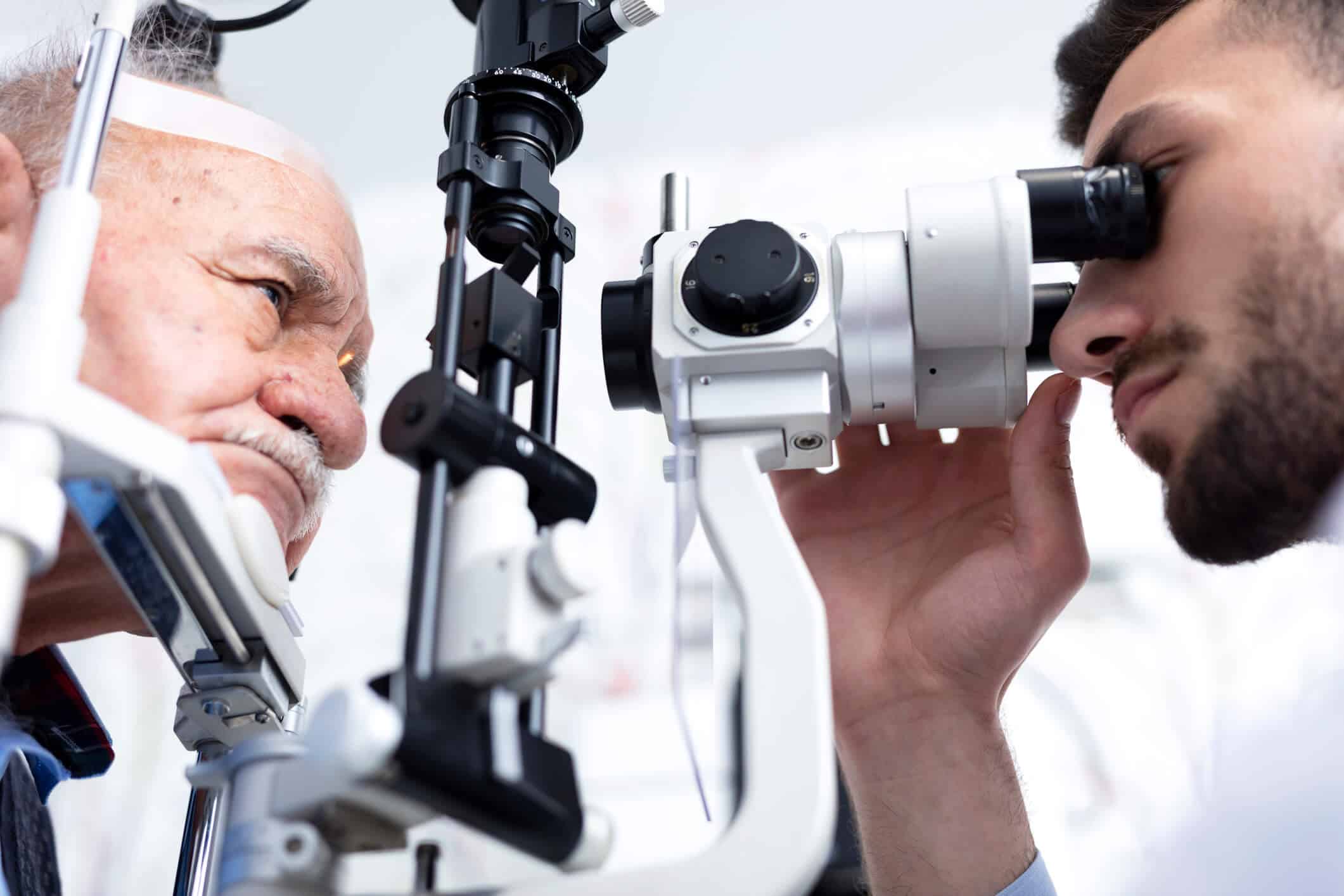We are no longer accepting new cases.
Studies Link Elmiron (Pentosan Polysulfate Sodium) to Retinal Damage
Studies have linked use of Elmiron, pentosan polysulfate sodium (PPS), to a unique kind of eye damage affecting the retina. This damage is best described as a type of pigmentary maculopathy.(4) (5) (6)
An initial study published in 2018 reported on a type of pigmentary maculopathy linked to chronic exposure to PPS. Patients in that study reported having difficulty reading. They also said they had experienced “prolonged dark adaptation.”(7)
Multiple researchers have responded to the reports of these eye adverse events. For example, one researcher and his colleagues concluded in an editorial submitted in response to the study above that, “these findings are alarming for both physicians and patients, and highlight the importance of annual ophthalmic examinations for all patients. … [T]he vision-threatening pigmentary maculopathy identified … is irreversible and vision loss of this nature is not recoverable.”(8)
Elmiron Pigmentary Maculopathy and Other Eye Problems
Taking Elmiron may lead to “vision-threatening medication toxicity.” This medical complication affecting your eyes raises significant concerns.(9)
Many people diagnosed with “similar-appearing” eye problems may have been misdiagnosed. “Preliminary investigations of databases indicate that many thousands of patients may be at risk.”(10)
Many patients who have been experiencing symptoms of Elmiron-related pigmentary maculopathy over the past two decades may have been misdiagnosed with “age-related macular degeneration and pattern dystrophy.”(11)
Symptoms of Pigmentary Maculopathy
Patients with Elmiron pigmentary maculopathy may experience:(12)
- Difficulty reading and prolonged dark adaptation.
- Blurred vision.
- Metamorphopsia, a type of perceptual distortion. Patients who experience this symptom report that “linear objects appear curved or discontinuous.” (13)
- Central area of diminished visual acuity.(14)
Several patients also have been reported to have choroidal neovascularization. Choroidal neovascularization is a condition in which there is development of “new, damaging blood vessels that grow beneath the retina…in an area called the choroid.” Choroidal neovascularization can cause vision loss.(15) (16) (17) (18)
What Is Elmiron Approved To Be Used For?
Elmiron is approved by the U.S. Food and Drug Administration (FDA) to help relieve bladder pain or discomfort in patients who have been diagnosed with interstitial cystitis. (19)
Interstitial cystitis is a chronic condition affecting the bladder and pelvis. This condition mostly affects women. (20)
Symptoms may include: (21)
- Bladder pain or discomfort.
- Urinary urgency.
- Frequent urination, often in small amounts.
- Painful sexual intercourse.
- Chronic pelvic pain.
Why Are People Filing Lawsuits?
People who take Elmiron are experiencing problems with their vision. People may be diagnosed with:
- Maculopathy.
- Pigmentary maculopathy.
- Retinopathy.
- Retinal pigment epithelium atrophy.
- Macular retinopathy.
Medication toxicity from Elmiron may cause you to experience vision loss, vision impairment, halo vision, unilateral or bilateral blindness, scotomas, metamorphopsia, or blurred vision.
These eye disorders that damage your retina may be irreversible. In worst-case scenarios, you could lose your vision entirely.
Consult your doctor before stopping any prescribed medication.
Other Side Effects
For patients who have developed severe vision damage, the medication “toxicity can resemble late-stage dry atrophic age-related macular degeneration (AMD) and result in permanent vision loss.” (22)
Common Side Effects Linked to Elmiron
In addition to potentially serious eye damage and vision problems linked to Elmiron, patients may experience more common side effects, including:(23)
- Hair loss.
- Diarrhea.
- Nausea.
- Blood in the stool.
- Headache.
- Rash.
- Upset stomach.
- Abnormal liver function tests.
- Dizziness.
- Bruising.
What To Do If You Have Been Affected
If you or a loved one has taken Elmiron and developed vision problems, we advise you to consult with our attorneys. You may be entitled to compensation for your injuries.
As a reputable, national law firm, our attorneys have experience handling complex defective drug and pharmaceutical cases. We can help you consider possible legal action.
Weitz & Luxenberg has a designated team of attorneys for this type of litigation. Our team has been handling cases involving defective drugs for more than 30 years.
We also have a history of winning. Over the years, we have won billions of dollars on behalf of our clients.
One of our attorneys would be happy to help you consider your legal options. We would feel privileged to assist you.
How Can Weitz & Luxenberg Help?
Weitz & Luxenberg is currently accepting cases involving clients who have experienced eye disorders and vision problems linked to Elmiron, including being diagnosed with pentosan polysulfate sodium (PPS)-related maculopathy.
We have had multiple legal successes with other drug lawsuits, including:
- $9 Billion Win — A Louisiana jury awarded $9 billion to our client, a man who developed bladder cancer after taking the diabetes drug Actos.*
- $13.5 Million Win — One of our clients was awarded $13.5 million in a Vioxx trial. Our client suffered a heart attack after taking Vioxx, a drug intended to treat arthritis and other pain conditions.
